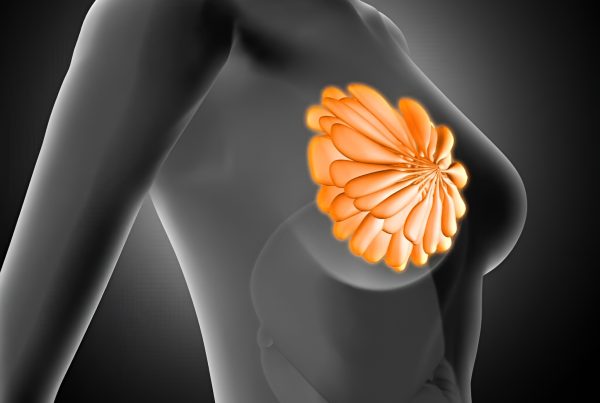The factors that can cause kidney lithiasis are various, from the age and weight of the person, their eating habits and external factors such as occupation and climatic factors.
In more detail, the factors of lithiasis are:
Age – Gender
Kidney stones usually occur between the ages of 40 and 60 and are generally more common in men than in women. After menopause, the incidence in women increases as the protective role of estrogen is lost, resulting in a significantly higher likelihood of kidney stone formation.
Body weight
Obesity is an aggravating factor for the formation of kidney stones. The poor diet of obese patients ( fatty, salty, spicy, sweet), combined with limited exercise, results in increased urinary excretion of substances (Calcium, Uric Acid, etc.), leading to the formation of urinary stones.
Occupation
Office occupations with long hours of immobility combined with sedentary life (lack of exercise) during the day and occupations with daily exposure to high temperatures (e.g. cooks, engineers), which cause intense sweating and dehydration lead to the formation of stones.
Geographical Factors & Climate
Climate is of particular importance for the formation of stones in the urinary tract and countries with a hot and dry climate (such as Greece, Israel, etc.) have a high incidence of stone formation.Sweating and dehydration caused by dry climates lead to the formation of stones.
Water Consumption
Hydration is the most important protective factor against the formation of stones in the urinary tract. Adequate hydration contributes to the elimination of dilute urine by reducing the content of stone-forming substances.In fact, adequate hydration is a key preventive measure.
Nutrition
Diet is one of the main factors in the formation of stones. Urine is one of the means of eliminating waste substances from our body and an increased concentration of certain substances in our urine can lead to the formation of stones. Animal proteins , fats and salts are actively involved in stone formation.
Systemic Diseases & Endocrinological Diseases
Diseases of the endocrine glands and kidneys may be key risk factors for the formation of large stones that are constantly recurring and difficult to treat. It is in these conditions that the existence of a structured lithiasis clinic in which the urologist in conjunction with the other specialties will create a plan to provide a definitive solution proves to be important.
Hyperparathyroidism for example is one of the causes of stone formation. Increased calcium excretion from the urine due to parathyroid hormone imbalance leads to the formation of multiple large-sized stones that even recur rapidly.
It is imperative that these patients are treated concurrently endocrinologically for their hyperparathyroidism because endourological treatment of their lithiasis alone is not able to provide a definitive solution. It is vital that the hyperparathyroidism is also treated with surgery as if it persists no matter how many times the urinary lithiasis is treated the patient will immediately continue to develop new stones
Kidney diseases such as polycystic kidney disease and nephrosclerosis, for example, but also diseases of the intestine (intestinal hyperoxaluria, Crohn’s disease), which affect the absorption and elimination of substances, also lead to the formation of stones.
Inherited conditions
The most typical inherited conditions and syndromes leading to stone formation are cystinuria, primary hyperoxaluria and renal tubular acidosis.
In these conditions the patient constantly develops new stones of large size and at short intervals. In this case too, a structured lithiasis clinic proves valuable for the comprehensive management of the patient as the combination of the intervention by the urologist and the treatment instructions suggested by the nephrologist can be beneficial in preventing recurrences.
Urinary tract infections
Specific bacteria that produce a substance called urease (such as Proteus) contribute to the formation of a special class of stones, the inflammatory strobilosis stones.These stones predispose to urinary tract infections and urinary tract infections predispose to the formation of inflammatory stones. Here the combination of surgery and appropriate antibiotic treatment with instructions from the infectious disease specialist will help to achieve definitive treatment.
Anatomical factors
Anatomical factors that prevent the normal flow and elimination of urine contribute to the formation of stones. Any disruption of normal urine flow either anatomically or functionally creates reduced urine output leading to thick urine that forms stones.
In recurrent lithiasis the specialist endourologist should always look for the possibility of anatomical and functional conditions leading to stones.
Conditions that lead to stone formation are the following:
- Pyleureteric confluence stenosis
- Renal calyx abscess
- Petaloid Kidney
- Ureteric stenosis
- Cystoureteric confluence stenosis
- Atonic Cyst
- Urethral stenosis
- Benign Prostate Hyperplasia
Dr. Ioannis S. Katafigiotis MD, PhD, FEBU, FECSM
UROLOGICAL ANDROLOGICAL SURGEON
Doctor of the University of Athens
Fellow of the European Board of Urology
Fellow of the European Committee of Sexual Medicine
Trained at Carl Gustav Carus, Dresden, Germany
Retrained at Hadassah Medical Center, Israel
Graduate of the American Society of Endourology





